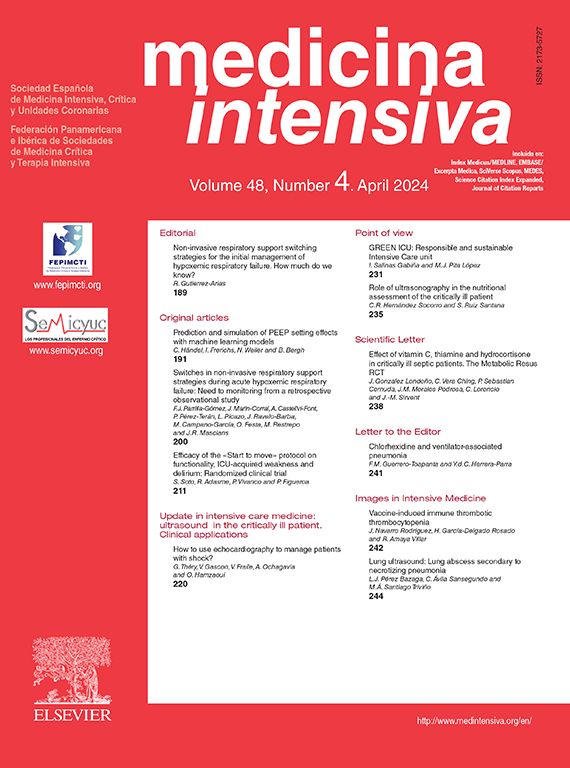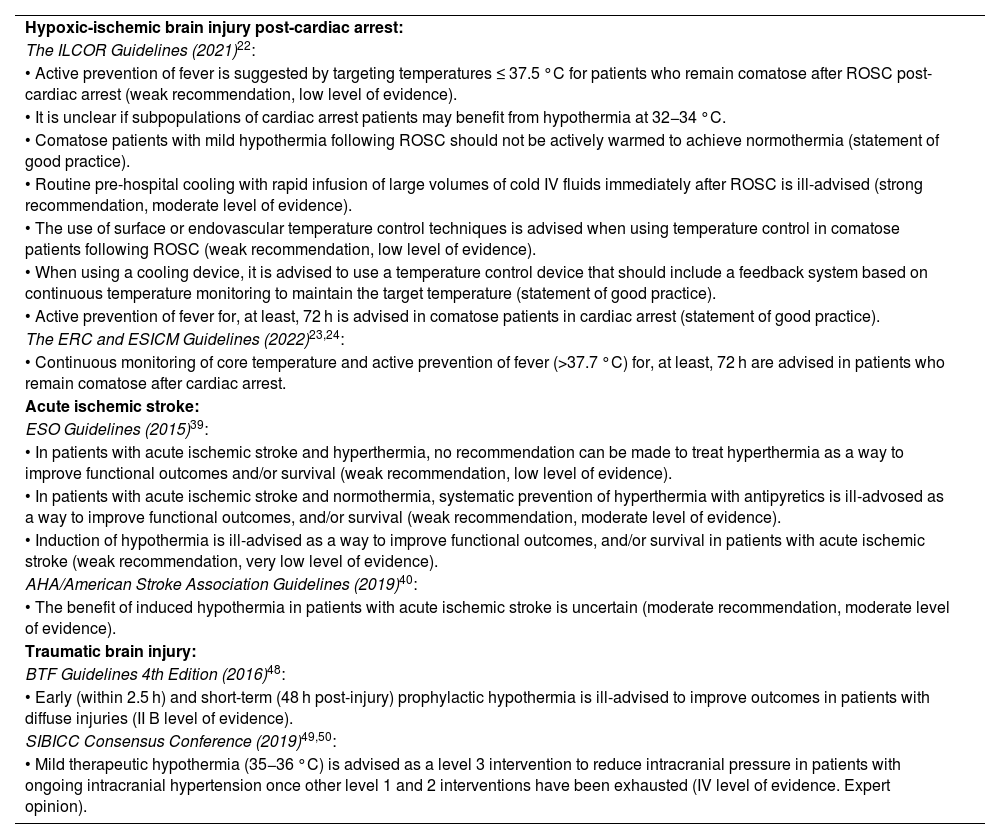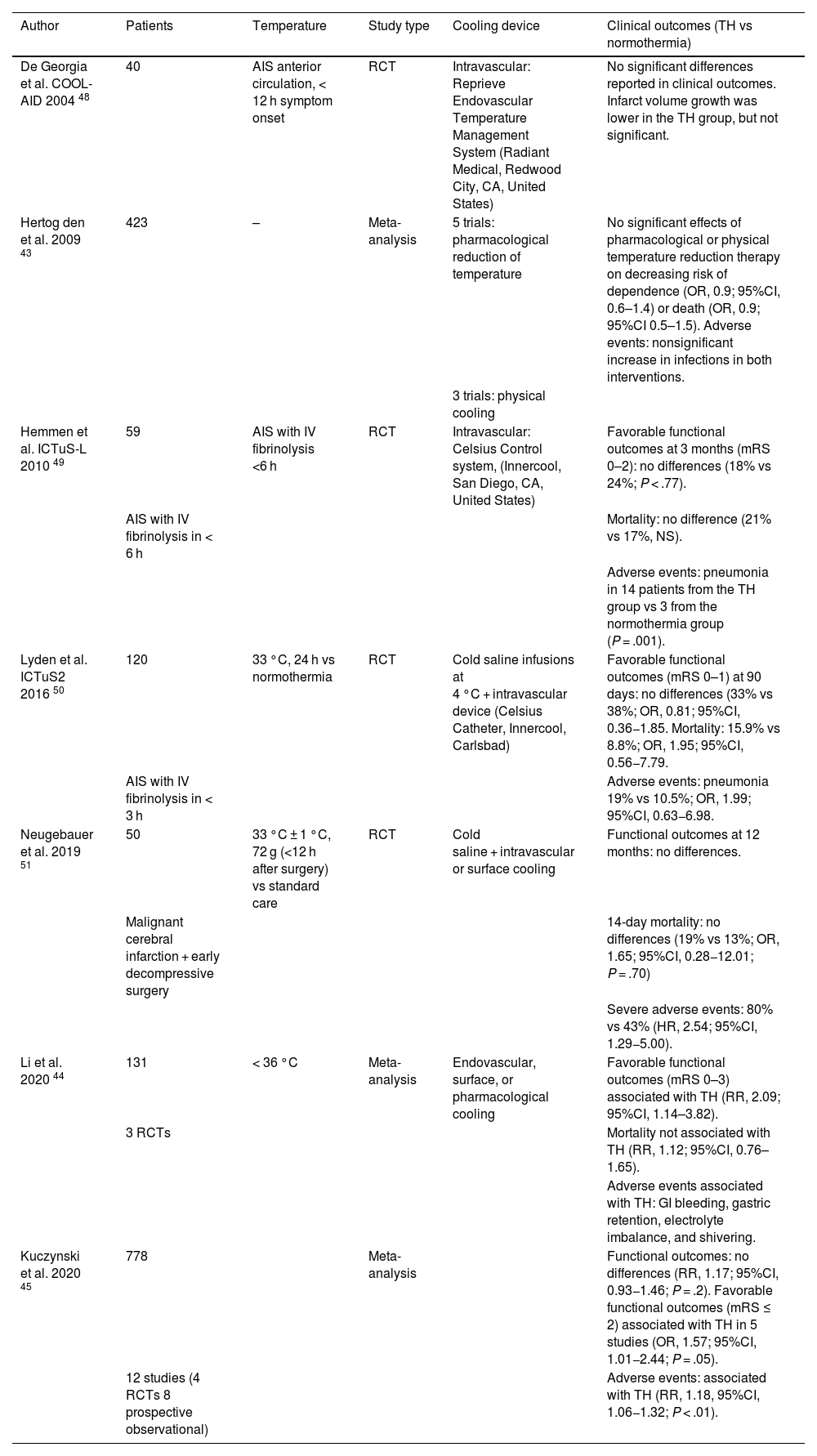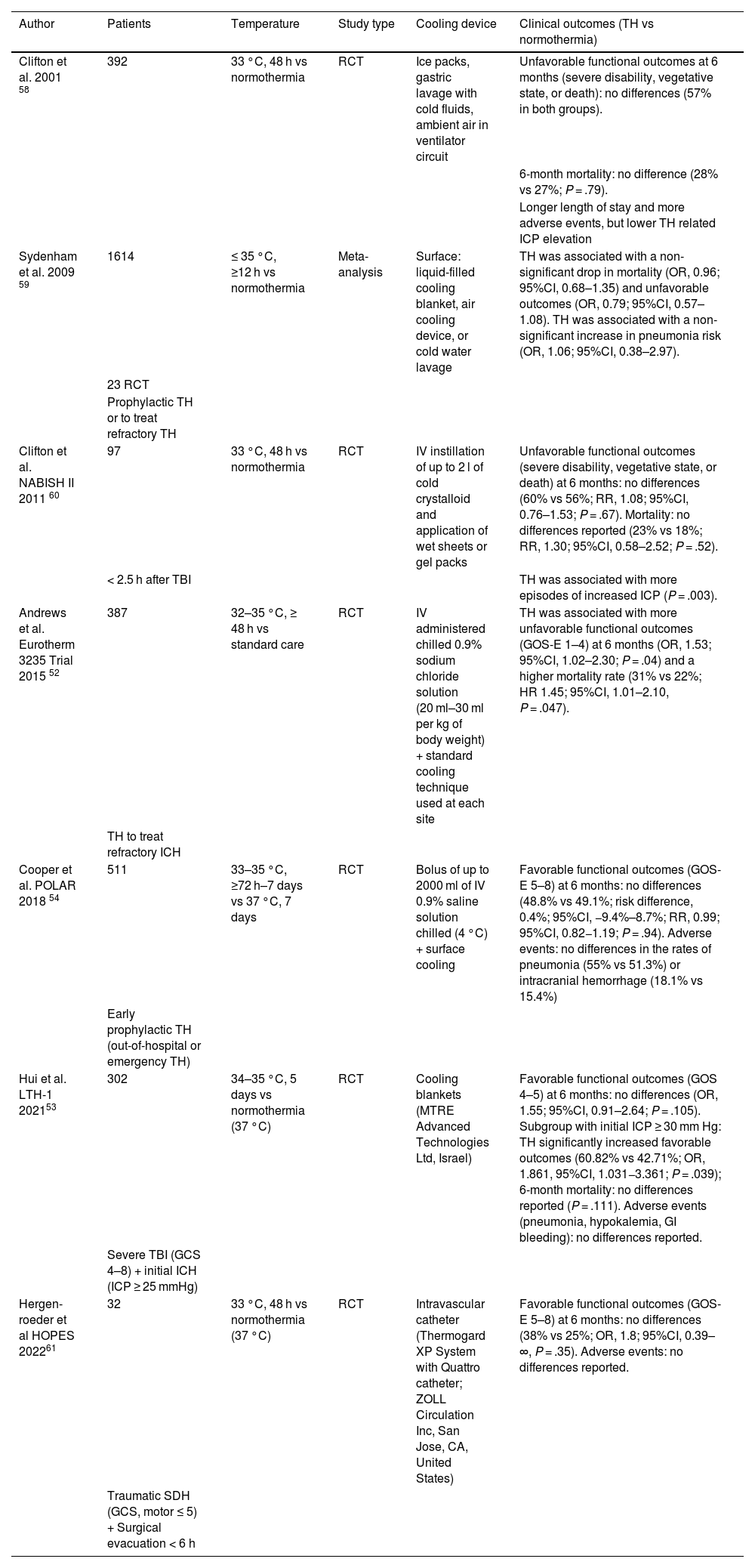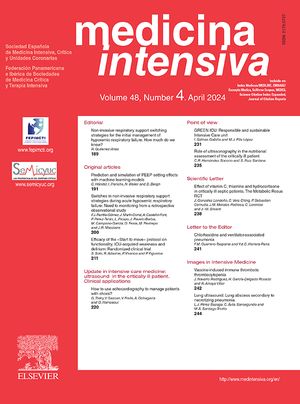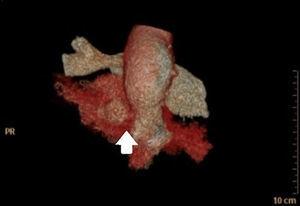Temperature management has been used in patients with acute brain injury resulting from different conditions, such as post-cardiac arrest hypoxic-ischaemic insult, acute ischaemic stroke, and severe traumatic brain injury. However, current evidence offers inconsistent and often contradictory results regarding the clinical benefit of this therapeutic strategy on mortality and functional outcomes. Current guidelines have focused mainly on active prevention and treatment of fever, while therapeutic hypothermia (TH) has fallen into disuse, although doubts persist as to its effectiveness according to the method of application and appropriate patient selection. This narrative review presents the most relevant clinical evidence on the effects of TH in patients with acute neurological damage, and the pathophysiological concepts supporting its use.
El control de la temperatura corporal se ha utilizado en pacientes con daño cerebral agudo ocasionado por distintas patologías como daño hipóxico-isquémico post-parada cardíaca, accidente cerebro vascular isquémico agudo y traumatismo craneoencefálico grave. Sin embargo, la evidencia actual ofrece resultados poco consistentes y a menudo contradictorios en cuanto al beneficio clínico de esta estrategia terapéutica sobre la mortalidad y los resultados funcionales. Las guías actuales han centrado su atención fundamentalmente en la prevención activa y el tratamiento de la fiebre, mientras que la hipotermia terapéutica (HT) ha caído en desuso, aún cuando persisten dudas sobre su efectividad de acuerdo con el modo de aplicación y la adecuada selección de pacientes. En esta revisión narrativa se presenta la evidencia clínica más relevante sobre los efectos de la HT en pacientes con daño neurológico agudo, así como de los conceptos fisiopatológicos en los que se fundamenta su uso.
Article
Go to the members area of the website of the SEMICYUC (www.semicyuc.org )and click the link to the magazine.

